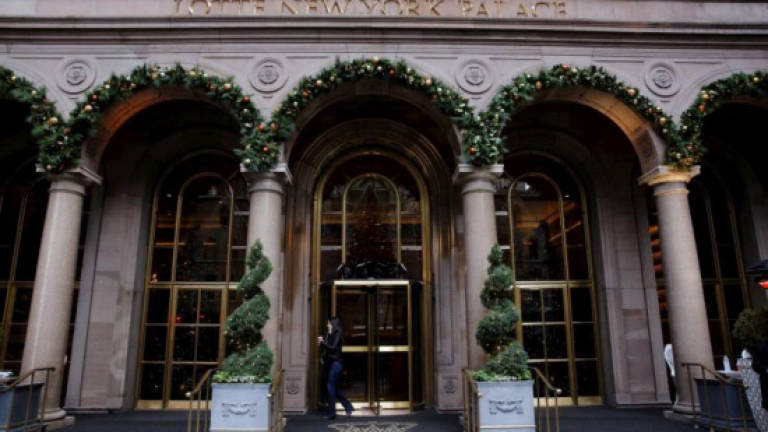Hoteliers unhappy with Tourism Tax Bill

PUTRAJAYA: Major players in the hotel industry are unhappy with the Tourism Tax Bill passed in Parliament during a 20-hour long sitting on April 6 as there was little to no consultation with stakeholders.
Malaysian Association of Hotels (MAH) president Samuel Cheah said government officials merely met with stakeholders twice to brief them about implementation plans rather than gather their feedback on the matter.
"The first meeting was on August 30, and they just told us what they wanted to do. The communication was only one way, there was no engagement. The second meeting was in October," Cheah told a press conference at Pullman Putrajaya Lakeside hotel.
Cheah said they were initially told that the government was planning to implement a tourism service fee during the first meeting, then it changed to a tourism promotion fee, and was finally revealed as Tourism Tax in Parliament.
He also claimed the Tourism and Culture Ministry's work group on the tax comprised exclusively of government officials from various ministries, underlining the lack of engagement in drafting the bill.
Cheah called on the government to engage with hoteliers before implementing the bill as law as there were many unanswered questions about the policy and how it will impact the industry negatively.
These include the tax obligations of unlicensed hotels, which seems to outnumber the number of hotels registered with the Ministry.
"As of November 2016, there are 3,046 hotels registered with the Ministry. Now it is over 3,100.But if you go to agoda.com, there are over 8,500 premises available for booking at any one time. This is not counting the 5,000 plus accommodations listed on Airbnb," Cheah said.
He said this begs the question of how the tax will be implemented if the Ministry intends to tax all accommodation premises including those that are unlicensed, which has yet to be clarified with hoteliers.
Cheah also asked if Malaysians staying in hotels, regardless of whether they are travelling for leisure or for business, will be taxed under the bill.
He said implementing the tax will also cause major cash flow problems within the hotel industry due to the need to upgrade their accounting software, much like when the Goods and Services Tax (GST) was implemented in 2015.
"A single hotel needed about RM1 million to upgrade its software when GST was implemented, we expect to spend a lot of money to integrate this tax into our system as well," Cheah said.
He added that Penang, Malacca, Langkawi, and Kota Bahru are already levying similar charges on hotels, and asked if there will be double charging for hoteliers when the tax is implemented.
Cheah then questioned how did the government arrived at a projected collection of RM654 million in tourism taxes assuming that hotels in Malaysia have an average 60% occupancy rate.
He said they have not gotten a response on the query and it is especially perplexing since the average occupancy rate of hotels in Malaysia is currently much lower in between 35% to 40%.
Malaysian Association of Hotel Owners (MAHO) vice-president Mohamad Halim Merican said there are better ways to implement the tax rather than making hotels the government's collection agents.
Mohamad Halim said taxing foreigners in the country's entry or exit points would be a far simpler alternative and such a system is already implemented in many countries with a tourist tax.
"In Japan tourists are required to purchase coupons from a vending machine before they fly out the country. All the tourists need to do is to show the coupons when they are boarding. It's such a simple system," he said.
Malaysia Budget Hotels Association (MyBHA) president PK Leong also asked if the government is recognising unlicensed hotels as legitimate businesses if it intends to tax them.
Leong said it is illogical for the government to tax unlicensed hotels when they should be closed down instead, and will make abiding to the laws of the land pointless.